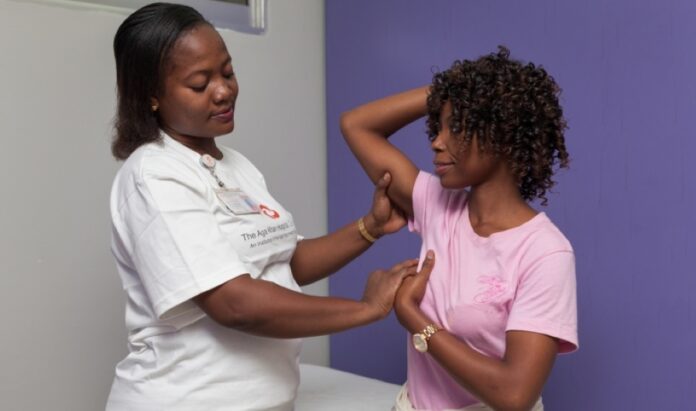On the occasion of International Women’s Day, Dr. Zainab Shinkafi-Bagudu sheds light on the significant barriers that women in Africa face in accessing cancer care. Deep-rooted cultural beliefs, financial struggles, and inadequate healthcare infrastructure continue to hinder early diagnosis and treatment, ultimately leading to preventable deaths. However, with strategic interventions, community engagement, and stronger healthcare policies, substantial progress can be made to bridge the gap.
The Persistent Challenges in Accessing Cancer Services
Cultural Stigma and Misinformation
One of the most pressing obstacles preventing women from seeking cancer care is cultural stigma. Diseases like cervical cancer are often shrouded in superstition and misinformation, leading to resistance against screening and vaccination programs. The fear and misconception that a cancer diagnosis equates to a death sentence prevent many women from seeking timely medical attention.
Social Expectations and Gender Norms
Even when women are aware of cancer risks, entrenched societal norms often deter them from prioritizing their health. Women, especially in traditional settings, are frequently the primary caregivers in their households. Given a choice between using limited financial resources for their own treatment or for their family’s welfare, they often prioritize the latter. Additionally, in many households, financial decisions rest with men, meaning that women require their husband’s approval before seeking medical care, which can lead to dangerous delays in treatment.
Financial Constraints and the Cost of Care
Economic barriers are another major hindrance to cancer care. In many African countries, healthcare services rely heavily on out-of-pocket payments. The cost of screening, diagnosis, and treatment is prohibitively high for many women, particularly those from low-income backgrounds. Without insurance coverage or subsidized treatment options, access to cancer care remains out of reach for many.
Geographical and Logistical Challenges
Physical access to cancer treatment centers is another challenge, especially for women in rural areas. In Nigeria, for example, around 80% of cancer patients must travel at least three hours to reach the nearest cancer center. The combination of transportation costs, accommodation expenses, and loss of income during treatment often makes seeking medical care an insurmountable challenge for many women.
Strategies to Overcome These Challenges
Community-Based Advocacy and Awareness Campaigns
One of the most effective ways to combat cultural stigma and misinformation is through targeted community engagement. Working with traditional rulers, religious leaders, and male heads of households can help dismantle long-standing misconceptions about cancer. Conducting awareness programs in local languages and tailoring messages to resonate with community values increases the likelihood of acceptance and participation.
Moreover, training local health advocates, religious leaders, and youth ambassadors to educate communities about the benefits of early detection and HPV vaccination has shown positive results in dispelling myths and encouraging preventive measures.
Expanding Financial Accessibility to Cancer Care
Governments and international organizations are making strides in easing the financial burden of cancer treatment by:
- Expanding health insurance schemes to cover cancer treatments.
- Subsidizing diagnostic tests and medications.
- Increasing government funding for cancer research and healthcare infrastructure.
- Partnering with international health organizations to provide affordable cancer treatment options.
Such initiatives can significantly reduce out-of-pocket expenses, allowing more women to receive timely medical care without financial ruin.
Enhancing Healthcare Infrastructure and Accessibility
To improve access to cancer care, investments in healthcare infrastructure are crucial. Initiatives include:
- Establishing more cancer screening and treatment centers in rural and underserved areas.
- Deploying mobile screening units to bring healthcare services closer to communities.
- Expanding telemedicine services to enable remote consultations and early diagnosis.
- Strengthening supply chains to ensure the availability of essential medications and diagnostic tools.
These measures not only improve accessibility but also ensure sustainability in cancer care services across Africa.
Case Study: The Medicaid Cancer Foundation’s Impact
The Medicaid Cancer Foundation, founded by Dr. Zainab Shinkafi-Bagudu, is at the forefront of breaking cultural and financial barriers to cancer care. The foundation works closely with local communities to:
- Raise awareness about cancer screening and prevention.
- Advocate for increased government investment in cancer care.
- Facilitate the rollout of HPV vaccination programs.
One of its landmark achievements is the successful implementation of Nigeria’s HPV vaccination program, which has reached over 13 million girls within a year. This initiative showcases the power of collaboration between governments, international organizations, and community leaders in driving large-scale healthcare interventions.
Ensuring Sustainable Progress in Cancer Care
While progress is being made, sustaining these efforts requires coordinated action at multiple levels. Key steps include:
- Strengthening partnerships between governments, non-governmental organizations, and international bodies.
- Encouraging research and innovation in cancer treatment and early detection technologies.
- Streamlining bureaucratic processes to improve healthcare policy implementation.
- Creating platforms where community-based organizations can effectively engage with policymakers.
The Call to Action on International Women’s Day
Dr. Zainab Shinkafi-Bagudu’s key message on International Women’s Day is clear: cancer care must be accessible, affordable, and stigma-free. While many successful programs have been implemented, long-term impact requires government policies that ensure continuity and sustainability. Every stakeholder, from policymakers to healthcare professionals to local community leaders, has a role to play in creating an ecosystem where women no longer face insurmountable barriers to essential cancer services.
With collective efforts, African women can gain the access they need to life-saving cancer care, ultimately improving survival rates and fostering healthier communities.
















 The African Research (AR) Index is a comprehensive scholarly directory and database focused explicitly on journal publishers that publish and disseminate African research.
The African Research (AR) Index is a comprehensive scholarly directory and database focused explicitly on journal publishers that publish and disseminate African research.

